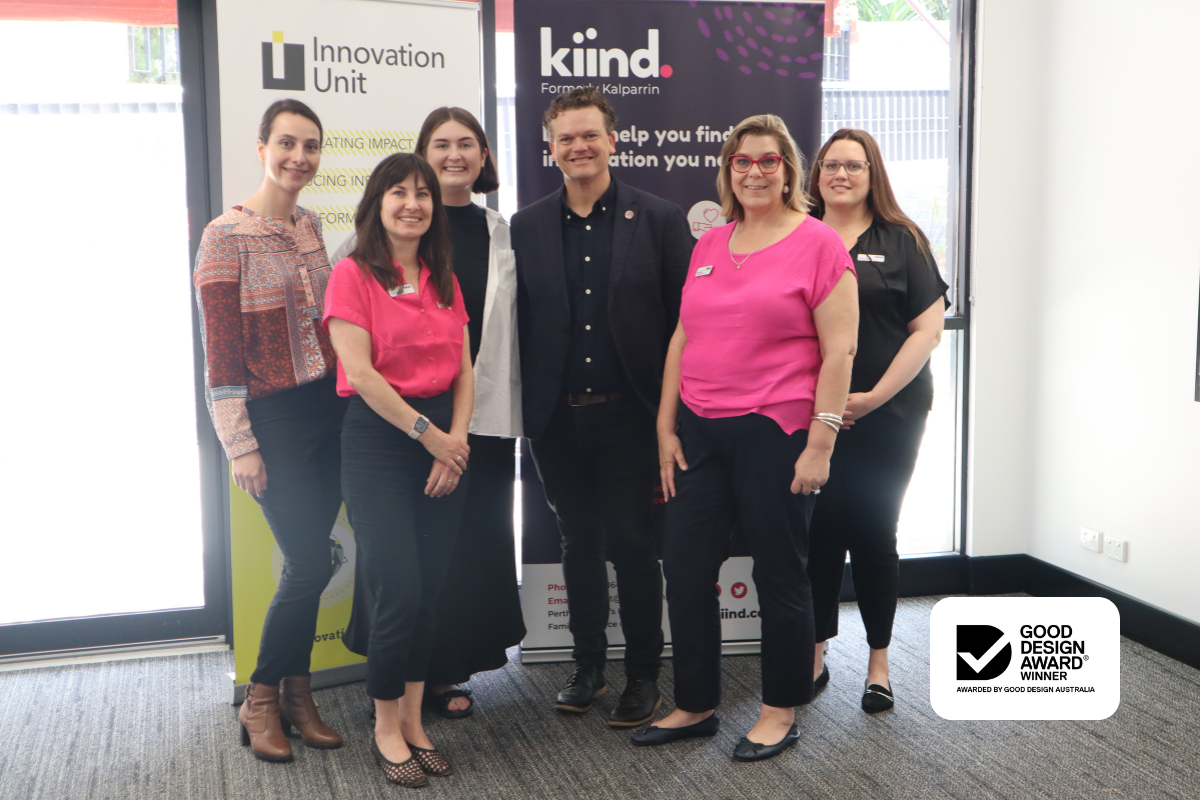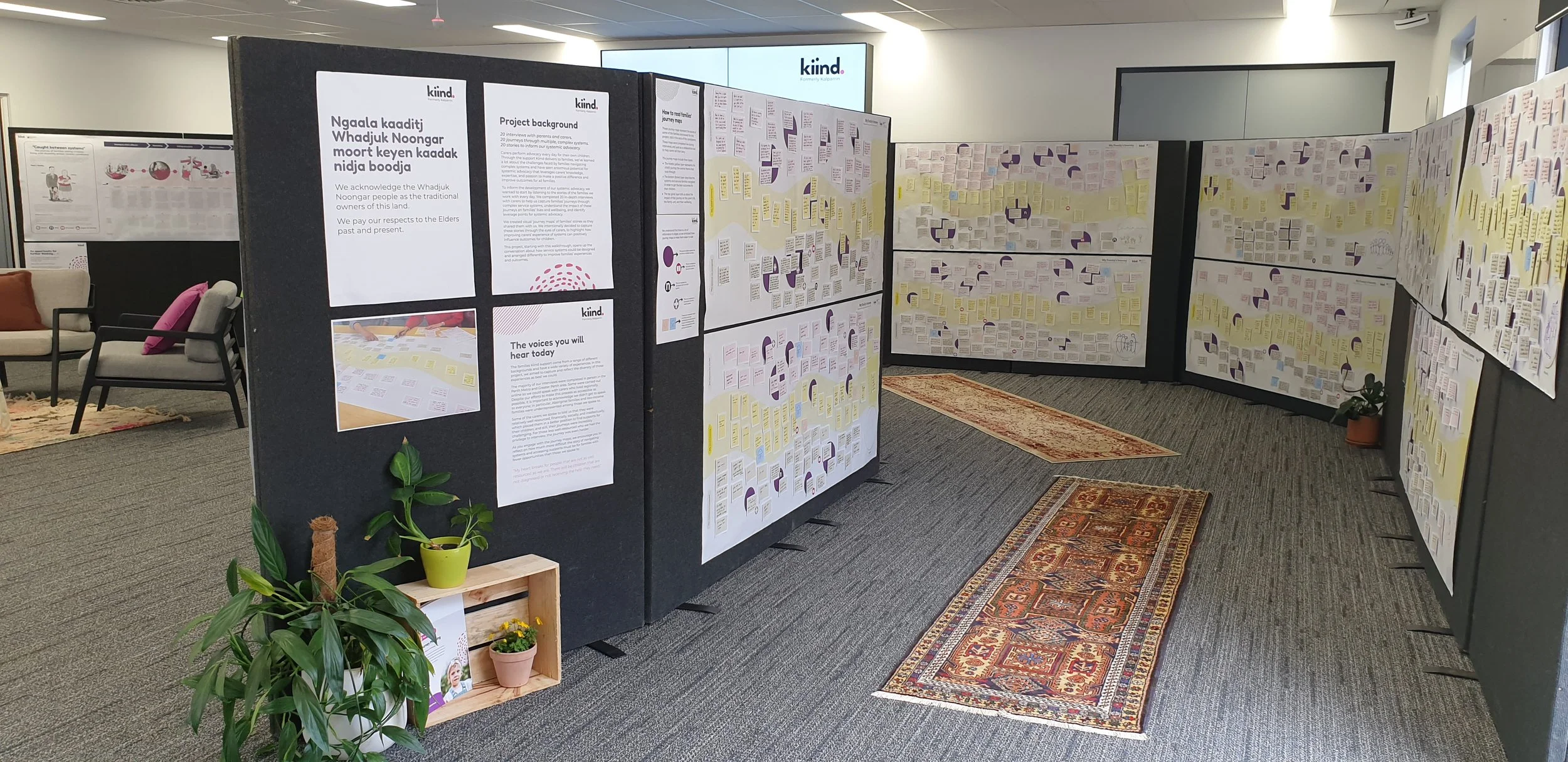Piecing the Puzzle Together: exploring the Experiences of Parents and Carers of Navigating Complex Support Systems
For parents and carers of children with disabilities and chronic conditions, navigating multiple support systems can feel like a neverending puzzle.
Advocating for Children with Disability and their Families
Kiind is a family-led, independent peer support organisation that supports more than 6,000 families in Western Australia who are caring for children with disability, developmental delay, autism, genetic, rare, undiagnosed and/or chronic conditions. To inform the development of their systemic advocacy service, Kiind wanted to start listening to the stories of families they work with every day.
In partnership with ThirdStory (formerly Innovation Unit Australia New Zealand), Kiind undertook a journey mapping project to document the real experiences of families navigating complex support systems. Families’ experience engaging with systems, such as NDIS, health and education, were captured using ‘journey maps’ to help represent the impact on families’ lives and wellbeing. The project also sought to identify opportunities for systemic advocacy that can make a positive difference in these families’ lives.
Lived Experience of Parents and Carers Guides Directions for Change
Kiind discovered that parents seeking support for their children often find themselves trapped in a bureaucratic maze, spending countless hours researching, advocating, and coordinating care. Parents often report feeling unheard and dismissed by professionals who hold the power to grant or deny services. The emotional and financial toll on families is immense, with many parents, particularly mothers, sacrificing their careers to manage their child's care full-time. The burden of navigating these systems often leads to burnout, social isolation, and declining mental health for carers.
The project highlighted various directions for change that could reshape the way support is provided to families. Some of these include:
Early Identification and Intervention: Ensuring that parents receive clear, timely guidance from professionals at the first signs of developmental concerns.
Accessible, High-Quality Information: Reducing the research burden on parents by centralising and simplifying resources.
Flexible Access to Services: Removing rigid eligibility criteria and long waitlists that prevent families from getting timely support.
Better Coordination Across Systems: Ensuring that healthcare, education, and disability services work together around families’ needs.
Parents also stressed the importance of creating more inclusive education environments, reducing financial inequities in service access, and fostering stronger peer support networks to combat isolation. Their insights offer a roadmap for change, making it clear that reform must centre on the lived experiences of those directly affected.
Kiind Journey Map walkthrough
The Power of Storytelling for Advocacy
We devised a robust and creative process to explore and record carers’ journeys and communicate findings back to families and to the sector, ensuring families retained ownership of their stories throughout the project. This process included the following:
20 In-depth empathy interviews with carers invited to share their family’s story. Visual ‘journey maps’ of families’ stories were created to help represent families’ long and complex journeys.
Analysis of findings on systemic challenges, families’ experiences, and opportunities for change in a report for distribution to families and professionals.
Professional production of a synthesised journey map, powerfully illustrating families’ key common experiences through service systems and highlighting opportunities for change.
Facilitation of a two-day exhibition event open to families and key sector stakeholders, presenting the outputs of the project and building momentum for systemic advocacy.
The visual journey maps of families’ stories played a fundamental role in the success of the project. They were developed live during interviews and used as a collaborative and reflective tool to help parents tell their story. These same journey maps were showcased in the two-day exhibition, allowing stakeholders to walk through the artefacts created by families themselves. By visually mapping out these experiences, the project created a powerful tool to advocate for better policies and more integrated services.
For example, the insights from this project have served as a critical foundation for the establishment of Kiind’s Systemic Advocacy Group in March 2024. The group seeks to help shape the goals, directions, and activities of Kiind’s systemic advocacy through co-designed solutions. With continued collaboration between policymakers, service providers, and those with lived experience, we can move toward a system to improve outcomes for children living with a disability or chronic condition and their families.
Project team
Jethro Sercombe Director, Innovation Practice


